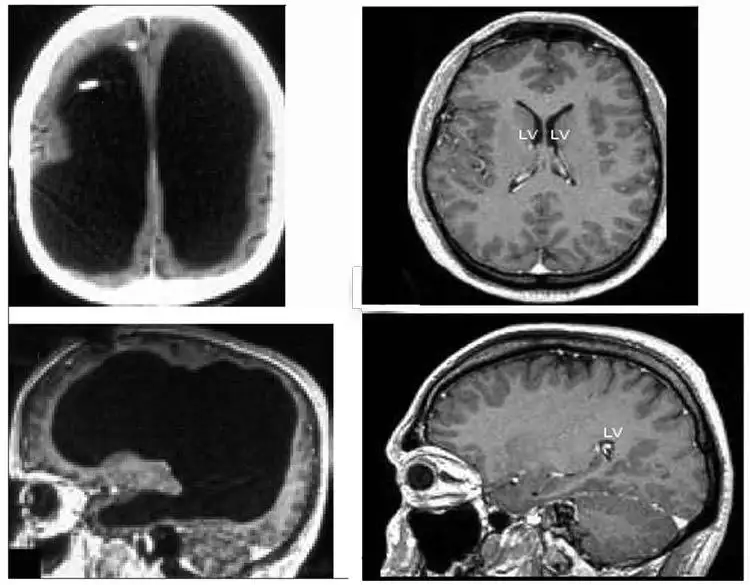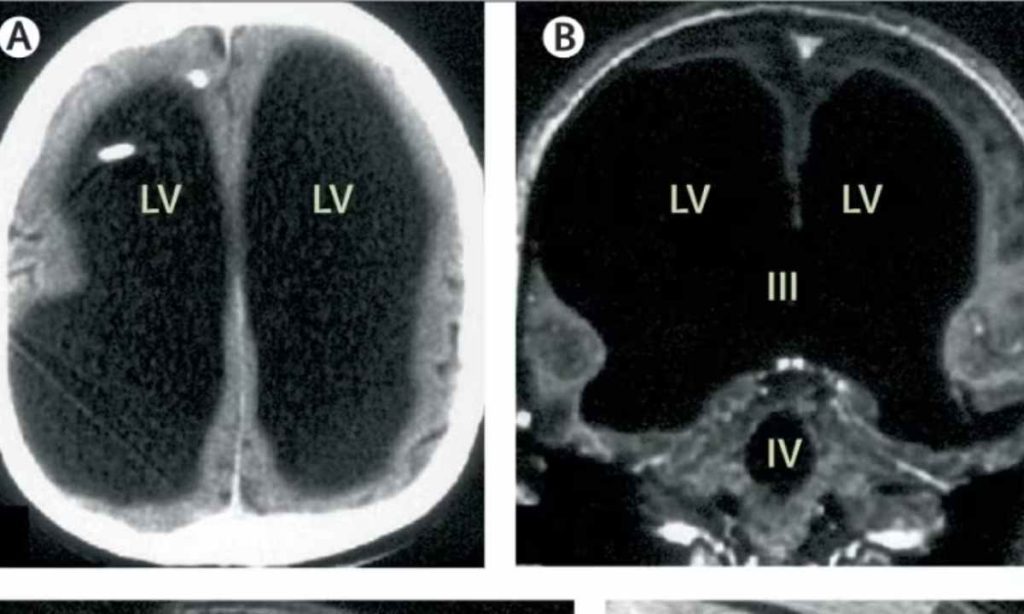In an astonishing case, a man has been living a normal life despite having 90% of his brain missing. This has challenged scientists’ understanding of the brain’s function. This 44-year-old from France went to the hospital after experiencing a weakness in his leg. Following this, the hospital did an MRI scan which left them surprised. It revealed the extensive loss of brain tissue, a condition called “hydrocephalus.” Remarkably, he leads a full life, working and engaging in daily activities just like anyone else.
This discovery has attracted considerable attention from the scientific community. Researchers are eager to understand how this person manages to function with such a significant portion of his brain missing. They also performed an IQ test to see if there were any issues with his intelligence. Let’s dive in for the details.
First reported in The Lancet in 2007, this case remains under scientific review even in 2025. As new research dives deeper into the man’s astonishing neuroplasticity, his story has reshaped how we think about consciousness, brain function, and the human body’s ability to adapt under extreme conditions.
Discovery and Diagnosis
The Frenchman first complained about mild left leg weakness for two weeks. Consequently, his unusual brain condition was first uncovered when he underwent an MRI scan at the University Hospital of Rennes. The scan revealed that 90% of his brain’s white matter was absent. This condition, known as hydrocephalus, is a rare neurological disorder characterized by an accumulation of cerebrospinal fluid. Despite the significant brain loss, his cognitive abilities remained largely intact.
Brain scans showed that a huge fluid-filled chamber called a ventricle took up most of the room in his skull, leaving little more than a thin sheet of actual brain tissue. “It is hard for me [to say] exactly the percentage of reduction of the brain. But visually, it is more than a 50 to 75 percent reduction,” says Lionel Feuillet, a neurologist at the Mediterranean University in Marseille, France. When Feuillet’s staff took his medical history, they learned that, as an infant, he had had a shunt inserted into his head to drain away water on the brain. But this shunt was removed when he was 14.
The brain is very plastic and can adapt to some brain damage occurring in the pre-and postnatal period when treated appropriately,
Dr. Lionel Feuillet,

“He led an ordinary life. He has a family and a job. When his IQ was assessed at the time of his concern, it was determined to be 75, slightly below the average range … So, while this individual may not be highly intelligent, he is perfectly competent socially”.
Axel Cleeremans, a cognitive psychologist at Université Libre in Brussels
He was married and had two children. He worked as a civil servant.

Brain Function and Adaptation
One of the most astonishing aspects of this case is how the man’s remaining brain tissue adapted. Scientists are puzzled by how this person’s brain can function with such extensive loss of tissue. They believe that brain plasticity plays a crucial role in this phenomenon. Brain plasticity refers to the brain’s ability to adapt and reorganize itself. His brain may have reorganized functions typically managed by the missing tissue to other areas.
In 2025, researchers from the Mediterranean University and Université Libre in Brussels continue to study his neural pathways. They believe the brain “rewired” itself to redistribute key functions usually performed by the missing regions.
It is so stunning a case of the brain’s ability to adapt.
Cognitive psychologist Axel Cleeremans
Research has shown that the brain can adapt remarkably well to damage or loss. In cases of severe brain injury, the remaining brain tissue often compensates for lost functions. This adaptation allows individuals to maintain normal cognitive abilities despite brain damage. This case provides a rare example of this phenomenon on a much larger scale.
Implications for Neuroscience
This person’s condition has significant implications for neuroscience. It challenges existing theories about brain function and consciousness. Traditionally, scientists believed that each part of the brain had a specific function.
For example, the hippocampus is associated with memory and the cortex with sensory processing. Man’s missing brain’s ability to function with only a fraction of his brain challenges this notion.
In 2025, one of the biggest philosophical debates sparked by this case still centers around the nature of consciousness. If a man can function with 10% of his brain mass, what does that say about the seat of consciousness? Is it distributed rather than localized?
The case prompts scientists to reconsider how consciousness and cognitive abilities are distributed across the brain. It also raises questions about the brain’s capacity to adapt to extreme conditions. Researchers hope to use this case to develop new treatments for neurological disorders and understand how the brain compensates for significant losses.
Further studies on this brain might reveal new insights into brain diseases and injuries. For instance, understanding his brain’s adaptability could help develop rehabilitation techniques for stroke victims or individuals with traumatic brain injuries.
Traditional neuroscience held that specific brain regions managed dedicated tasks (e.g., memory in the hippocampus). But this case shows that functions may be far more fluid and adaptable than previously believed.
Ongoing Research and Future Directions
Research on this man is ongoing. Scientists continue to investigate how his brain manages to function so effectively despite the massive loss of tissue. Studies are being conducted to understand the neural mechanisms behind his brain’s plasticity.
Conclusion
This person’s story is a remarkable example of brain resilience and adaptability. Despite missing 90% of his brain, he lives a normal and productive life. His condition offers valuable insights into brain function and plasticity, challenging existing scientific understanding. As researchers continue to study his case, they hope to unlock new knowledge about the brain and its remarkable ability to adapt.
This case not only broadens our understanding of the brain but also holds potential for advancements in medical science and treatment strategies.
Also Read:










